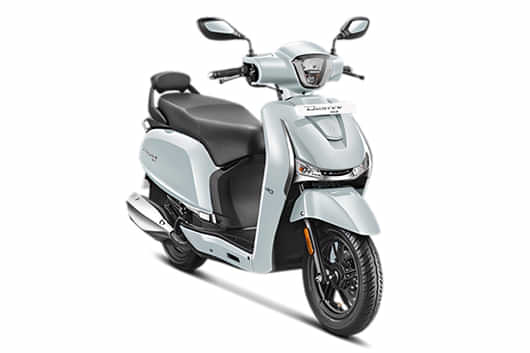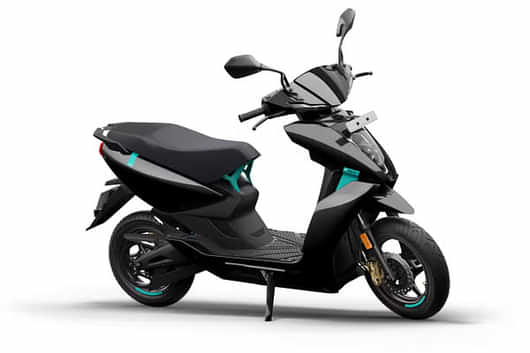
KEY HIGHLIGHTS
- Learn about how to make your car key working.
- Gain insights about different types of keys.
- Learn about smart keys
There could be many reasons you're experiencing problems with your car key. The complexity of modern car keys is far higher than in earlier models. You need to know what to search for, depending on the symptoms you're having with your specific key, to resolve the issue. This article will highlight the various car key problems to help you fix your issues with your car key.
Car Keys Mechanism
To understand the car mechanism, we shall begin with parts of a car key, that is, the key blade and the key fob:
Key Blade: To physically unlock or start the car, you put the key blade into the ignition switch or door lock cylinder. It is often constructed of metal and has ridges and grooves that match your car's lock mechanism.
Key Fob: The key fob, a key or keyless entry remote, is a gadget with several other key uses. A battery and electronic circuits transmit signals to the vehicle's security system. The key fob transmits a specific signal to the car's receiver when a button is pressed, which causes the receiver to take the appropriate action, such as unlocking the doors or disarming the immobilizer to enable the engine to start.
Types of Car Keys
1. Traditional Mechanical Key: This is the classic key used for decades. It is a simple metal key that physically inserts into the car's ignition cylinder and turns to start the engine.
2. Transponder Key: Also known as a chip key, a transponder key has a small electronic chip embedded in the head of the key. When you insert the key into the ignition, the car's immobilizer system communicates with the chip to verify its authenticity before allowing the engine to start.
3. Remote Keyless Entry (RKE) Key: This type of key includes buttons that allow you to remotely lock, unlock, and sometimes even start the car without inserting the key into the ignition. It uses radio frequency (RF) signals to communicate with the car.
4. Smart Key (Proximity Key): A smart key is a more advanced version of the remote keyless entry key. It uses proximity sensors to automatically unlock the car's doors when you approach the vehicle. Additionally, you can start the engine by pushing a button without physically inserting the key into the ignition.

Car Keys Not Working: Reasons and Troubleshooting
Traditional Keys
Traditional keys can fail for various reasons, and resolving these problems relies on the individual issue encountered. The following are some typical causes of traditional keys failing and possible solutions:
- Key Wear and Tear
Problem: Traditional keys can degrade over time, leading to a key that doesn't fit properly or problems turning the ignition.
Troubleshooting: Have the worn-out key replicated at a reputable locksmith or dealership,or think about producing a new one using the original key or its code.
- Ignition Cylinder Problems
Problem: The ignition cylinder could get worn out or broken, making turning or inserting the key challenging.
Troubleshooting: To diagnose the issue, turn the key while gently jiggling it to see if it engages. If the issue is unresolved, seek professional assistance to repair or replace the ignition cylinder.
- Key Failure
Problem: Keys can break, mainly if worn out or constructed of inferior materials.
Troubleshooting: If the key has broken within the ignition, do not attempt to remove it alone, as this could result in more harm. Contact a skilled locksmith or a car dealership to retrieve the damaged key and create a new one safely.
Also Read: Car Brake Failure: Causes, Warning Signs, and Safety Tips
Transponder Keys
The following are some typical causes of transponder key failure and proposed fixes for them:
- Dead Key Battery
Problem: The chip in transponder keys is powered by a tiny internal battery. The key might not be able to communicate with the vehicle's immobilizer system if the battery is dead, which would prevent the engine from starting.
Troubleshooting: Change the transponder key's battery. The standard coin cell battery that powers most transponder keys is easily replaceable. For information on the proper battery type and replacement procedure, consult the user handbook for the key or call a locksmith.
- Transponder chip damage
Problem: If the transponder chip in the key is hit by something or is exposed to harsh weather, it could get damaged.
Troubleshooting: Fix: If the chip is destroyed, the key might need to be changed. A locksmith or the authorized repair center of the car manufacturer can make a new transponder key specifically programmed for your vehicle.
- Misalignment or Programming Loss:
Problem: The car won't recognize the key if the transponder chip is not positioned correctly with the immobilizer system or if the programming is lost.
Troubleshooting: Reprogram the transponder key to correspond with the immobilizer system on the automobile to fix. It is preferable to seek the advice of a qualified locksmith or the service department of the vehicle's manufacturer for this procedure since it necessitates specialized tools and skills.

Remote Keyless Entry Keys/ Smart Keys
Here are some typical reasons for failure and possible fixes for smart keys:
- Defective or Dead Battery
Problem: A dead or weak battery usually causes key fob failure. Reduced signal strength brought on by a low battery can make it difficult for the key fob to communicate with the vehicle's central locking system or start the engine.
Troubleshooting: Install a fresh battery in the key fob. Standard coin cell batteries, which can be easily changed, are used in most key fobs. For information on the proper battery type and replacement procedures, go to the user handbook for the key fob or contact a locksmith.
- Key Fob Physical Damage:
Problem: Physical damage from dropping or improper treatment of the key fob, such as broken casings or harmed electrical components, can result in malfunctions.
Troubleshooting: The key fob might need to be replaced if it is physically damaged. Repair may not be feasible or cost-effective, depending on the extent of the damage. Speak with a locksmith or the manufacturer's service department for a replacement key fob.
- Problems with key fob programming
Problem: Key fobs must be appropriately programmed to function with a particular car. The key fob may be unable to start the engine or operate the central locking system of the automobile if the programming is missing or wrong.
Troubleshooting: Reprogram the key fob to work with the vehicle's immobilizer and central locking system. It's preferable to speak with a qualified locksmith or the service department of the car manufacturer because this procedure necessitates specialized tools and skills.
- Signal interference or blockage:
Problem: Just like with transponder keys, interference from other electrical equipment or nearby metal objects can cause the key fob's signal to be disrupted.
Troubleshooting: Verify that the key fob is not close to any electronics or metal objects. Before trying to use the key fob again, try to get away from any potential interference sources.
Also Read: The Ultimate Pre-Delivery Inspection Guide for New Cars
Other Reasons for Car Keys Not Working
Here are a few general reasons for car keys not working:
Inoperative car key sensor: The car key sensor is responsible for detecting the presence of the key fob and allowing access to various features, such as unlocking the doors or starting the engine. If the key sensor is not working, the car may not respond to the key's presence or commands.
Range: Move closer to your vehicle and try to start or unlock it. Getting closer to the car may assist in establishing a connection because the vital fob's range is occasionally limited.
Interference: Radio frequency interference from surrounding structures or other electrical devices may disrupt the transmission between your key fob and the car. Try using the key again after moving away from potential interference sources, such as oversized metal items or other electronic gadgets.
Fundamental Damage: Look for physical damage to the key fob, such as a fractured shell or water damage. The key fob might need to be repaired or replaced if you notice any such problems.
Programming: The key fob may occasionally need reprogramming to work with the car's safety system. For assistance, consult your car's owner's manual, and contact a reliable locksmith or the automaker.
These tips should help you understand the problem and how to fix it on your own. If none of these solutions work, it may be preferable to contact a reputable automotive locksmith or the service department of the company that makes your automobile for more help.
Stay up to date with all the automotive news and updates by joining our 91Wheels Whatsapp Group today!



















































